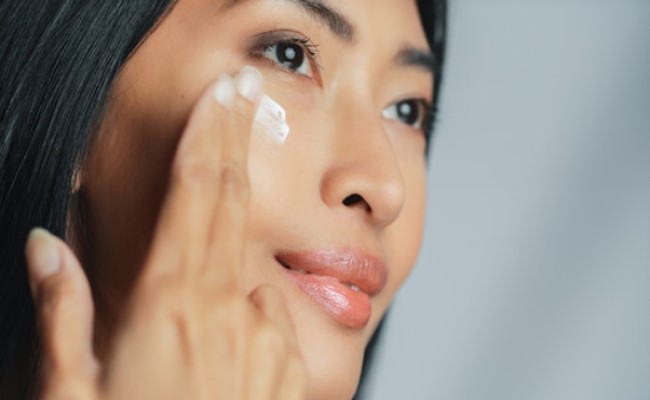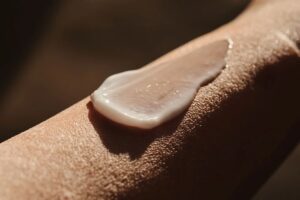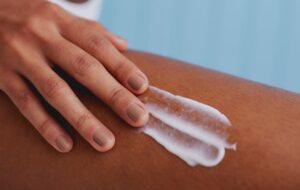How to Choose the Best Hydroquinone Cream 4% for Your Skin Type

Hydroquinone creams have long been lauded for their effectiveness in treating hyperpigmentation, melasma, and other forms of skin discoloration. However, choosing the right hydroquinone cream, especially one with a 4% concentration, can be daunting. This article aims to guide you through the process, ensuring that you make an informed decision based on your skin type and specific needs.
Understanding Hydroquinone
Hydroquinone is a skin-lightening agent that works by inhibiting the enzyme tyrosinase, which is essential for the production of melanin. Melanin is the pigment responsible for skin, hair, and eye color. By reducing melanin production, hydroquinone helps fade dark spots and even out skin tone.
Benefits of Hydroquinone 4% Creams
A 4% concentration of hydroquinone is the most potent available over the counter. This concentration is typically recommended for individuals with severe hyperpigmentation issues or those who have not responded to lower concentrations. The benefits of using hydroquinone 4% include:
- Rapid results: Users often notice a significant reduction in dark spots and an improvement in skin tone within a few weeks.
- Targeted treatment: Hydroquinone can be used to treat specific areas of concern, making it a versatile option for various skin conditions.
- Enhanced efficacy: Higher concentrations of hydroquinone are more effective in breaking down stubborn pigment clusters.
Identifying Your Skin Type
Before selecting a hydroquinone cream, it’s crucial to identify your skin type. This knowledge will help you choose a product that complements your skin’s characteristics and minimizes potential side effects.
1. Dry Skin
Individuals with dry skin should opt for hydroquinone creams that are enriched with moisturizing agents. These ingredients will help prevent further dryness and irritation. Look for products containing:
- Hyaluronic acid: This powerful humectant draws moisture into the skin, keeping it hydrated and plump.
- Ceramides: Essential for maintaining the skin’s barrier function, ceramides prevent moisture loss and protect against environmental aggressors.
Natural oils: Oils like jojoba, argan, and almond can nourish the skin without clogging pores.

2. Oily Skin
Those with oily skin should choose hydroquinone creams that are non-comedogenic and oil-free to prevent clogged pores and breakouts. Ingredients to look for include:
- Salicylic acid: This beta-hydroxy acid (BHA) helps exfoliate the skin, clear out pores, and reduce oiliness.
- Niacinamide: Known for its sebum-regulating properties, niacinamide can help control oil production and reduce inflammation.
- Green tea extract: This antioxidant-rich ingredient helps soothe the skin and reduce excess oil.
3. Sensitive Skin
For individuals with sensitive skin, selecting a gentle hydroquinone cream is crucial. Look for products that are fragrance-free and formulated with calming ingredients such as:
- Aloe vera: Known for its soothing and anti-inflammatory properties, aloe vera can help reduce irritation and redness.
- Chamomile: This botanical ingredient is renowned for its calming effects and can help alleviate skin sensitivity.
- Oat extract: Oats are rich in beta-glucans, which help soothe and protect sensitive skin.
4. Combination Skin
Combination skin types require a balanced approach. Look for hydroquinone creams that provide hydration without overloading the skin with oils. Ingredients that can help maintain this balance include:
- Glycerin: A lightweight moisturizer that draws water into the skin without leaving a greasy residue.
- Panthenol (Pro-Vitamin B5): Helps soothe and hydrate the skin while promoting a healthy skin barrier.
- Allantoin: This ingredient aids in skin repair and provides a soothing effect, making it suitable for combination skin.
Patch Testing
Regardless of your skin type, it’s essential to perform a patch test before incorporating a new hydroquinone cream into your skincare routine. Apply a small amount of the product on a discreet area of your skin, such as behind the ear or on the inner arm. Monitor the area for 24-48 hours to ensure no adverse reactions occur.
Application Tips
- Start slowly: Begin by using the hydroquinone cream every other night to gauge your skin’s response. Gradually increase the frequency as your skin adapts.
- Sun protection: Hydroquinone can make your skin more sensitive to the sun. Always apply a broad-spectrum sunscreen with at least SPF 30 during the day to protect your skin.
- Moisturize: Follow up with a moisturizer to keep your skin hydrated and minimize potential irritation.
- Consistency is key: Use the product consistently as directed to achieve the best results.
Possible Side Effects
While hydroquinone is generally safe, some individuals may experience side effects, such as:
- Skin irritation: Redness, burning, or stinging may occur, especially in individuals with sensitive skin.
- Increased sun sensitivity: Hydroquinone can make your skin more susceptible to sunburn. Always use sunscreen and limit sun exposure.
Allergic reactions: In rare cases, hydroquinone may cause an allergic reaction. Discontinue use and consult a dermatologist if you experience severe itching, swelling, or difficulty breathing.

Consult a Dermatologist
If you have persistent hyperpigmentation or are unsure about which hydroquinone cream to choose, consult a dermatologist. They can provide personalized recommendations and monitor your progress to ensure safe and effective treatment.
Conclusion
Choosing the right hydroquinone cream can make a significant difference in your skincare journey. By understanding your skin type and following the guidelines outlined above, you can effectively select a hydroquinone 4% cream that suits your specific needs and achieve a brighter, more even complexion.
FAQs
How long does it take to see results with hydroquinone 4% cream?
Typically, users can start seeing noticeable results within 4-8 weeks of consistent use. However, results may vary based on individual skin conditions and adherence to application guidelines.
Can hydroquinone 4% cream be used on all skin tones?
Yes, hydroquinone can be effective for various skin tones. However, it’s crucial to perform a patch test and consult with a dermatologist to ensure the best outcome and minimize potential risks.
Is it safe to use hydroquinone during pregnancy?
No, hydroquinone is not recommended for use during pregnancy or breastfeeding. Always consult with a healthcare provider before starting any new skincare treatment during these times.
What should I do if I experience irritation from hydroquinone 4% cream?
If you experience irritation, discontinue use immediately and consult with a dermatologist. They can recommend alternative treatments or adjust your regimen to reduce irritation.


